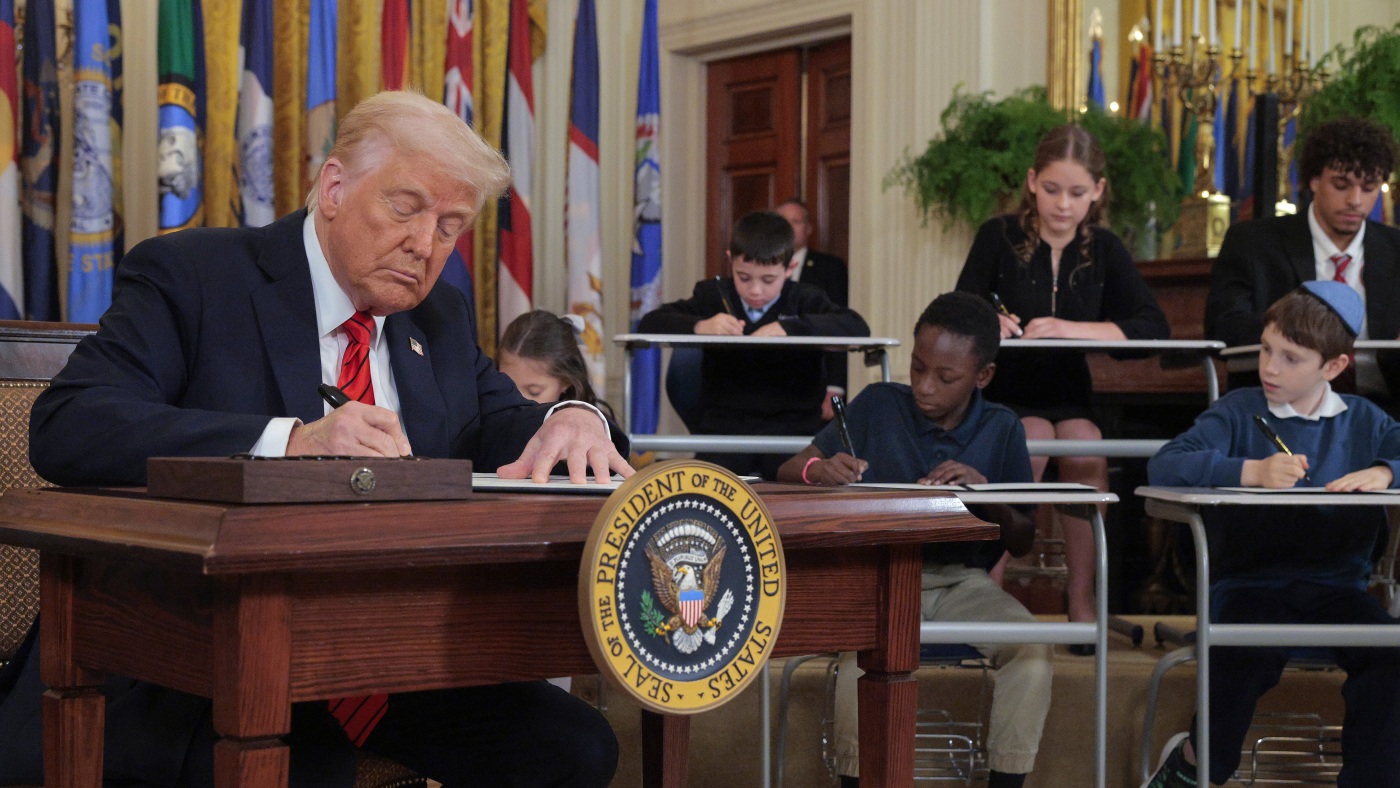Trump’s Controversial Executive Order Sparks Debate Over Education’s Future
The recent executive order signed by President Trump aimed at dismantling the U.S. Department of Education has stirred significant debate. This move has raised questions about the future of education governance in the country.
In a decisive action, Trump directed Secretary Linda McMahon to “take all necessary steps to facilitate the closure of the Department of Education and return authority over education to the States and local communities.” However, the department’s closure cannot be finalized without congressional consent. More on this can be found here.
Former Education Secretary under President Obama, John B. King Jr., has expressed concerns about this initiative. He suggested that the focus should be on addressing educational challenges such as chronic absenteeism rather than diminishing the department. “The reality is we need the department to provide leadership in this moment,” King stated in an interview with NPR.
Additionally, the Trump administration has been criticized for detaining international scholars who voiced support for Palestinian causes or criticized Israel, creating a climate of fear in academia. King commented, “It’s deeply troubling… people need to be able to express their views while studying at American universities without fear.”
Impact on Universities and Federal Funding
The implications of the order extend beyond governance. King highlighted concerns regarding federal investments in research and education. He emphasized the importance of these investments in maintaining the U.S. as a leader in innovation. Reductions in funding could undermine the nation’s economic standing.
King also pointed out the potential risks to the federal financial aid system, crucial for low-income students. The free application for federal student aid is essential for accessing programs like the Pell Grant. “If the FAFSA breaks, you’re undermining the entirety of public higher education,” King warned.
The Debate on School Choice
School choice, including private school vouchers, is a significant component of the administration’s strategy. King voiced concerns about this approach, arguing that vouchers might not improve student performance and could weaken public education’s role in fostering democracy.
In rural areas, where private schooling options are limited, the introduction of vouchers could deprive public schools of necessary resources, potentially leading to teacher layoffs and reduced opportunities for students.
For further insights on how these developments could reshape education, read more here.





